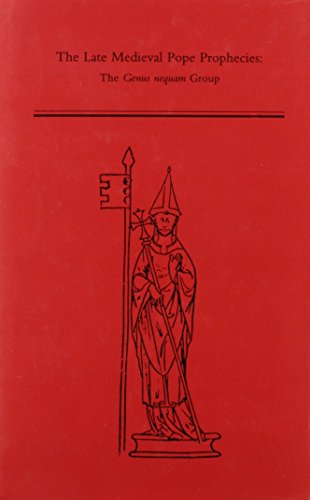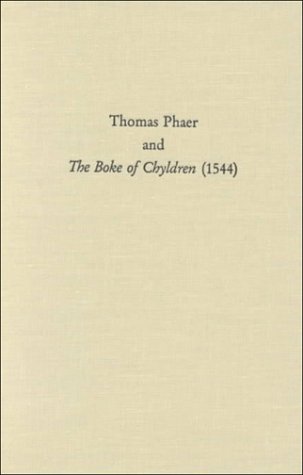


Books in series

Dolopathos or the King and the Seven Wise Men (Medieval and Renaissance Texts and Studies)
1999

His Poems
1350

Medieval Literature Texts and Interpretation
1991

English Language Scholarship
A Survey and Bibliography from the Beginnings to the End of the Nineteenth Century
1996
Muses Method
An Introduction to Paradise Lost
1970

Sedulius Scottus
On Christian Rulers and The Poems
1983

Dante, Petrarch, Boccaccio
Studies in the Italian Trecento in Honor of Charles S. Singleton (Medieval & Renaissance Texts & Studies, V. 22)
1983

Medievalism in American Culture
Papers of the Eighteenth Annual Conference of the Center for Medieval and Early Renaissance Studies
1989
The hero in the earthly city
A reading of Beowulf
1984

Oral Tradition in the Middle Ages
1995
Approaches to Nature in the Middle Ages
Papers: 16
1983

Collectanea Trapezuntiana Texts, Documents, and Bibliographies of George of Trebizond
1983

On the Three Languages (Medieval and Renaissance Texts and Studies, Vol 68
1989

The Late Medieval Pope Prophecies
The Genus Nequam Group
1999

Pindar and the Renaissance Hymn-Ode
1450-1700
2001

Giovanni Conversini da Ravenna
Dialogue between Giovanni and a Letter
1989

Milton in the Age of Fish
Essays on Authorship, Text, and Terrorism
2006

Miscellanea Moreana
Essays for Germain Marc'Hadour
1989

Johannis Wyclif Summa Insolubilium
1986
John Colet's Commentary of First Corinthians (Medieval & Renaissance Texts & Studies)
1985

Thomas Phaer and the Boke of Chyldren (1544)
2015
Andrea Palladio
The Churches of Rome
1991

1598
A Year of Pageantry in Late Renaissance Ferrara
1990
Elias of Thriplow
Serium Senectutis (MEDIEVAL AND RENAISSANCE TEXTS AND STUDIES)
1995
El Encanto Es LA Hermosura Y El Hechizo Sin Hechizo - LA Segunda Celestina
1994
An Annotated Index to the Commentary on Gower's Confessio Amantis
1989

Thomas Phaer and the Boke of Chyldren (1544)
1999

Pilgrimage for Love
Essays in Early Modern Literature in Honor of Josephine A. Roberts
1999

Thomas and Rebecca Vaughan's Aqua Vitae
Non Vitis
2001

The Latin Chronicle of the Kings of Castile (Medieval & Renaissance Texts & Studies
2002

Words Derived from Old Norse in Early Middle English
Studies in the Vocabulary of the South-West Midland Texts
2004

Beowulf and the Critics
1936

Images, Relics, And Devotional Practices in Medieval And Renaissance Italy
2005

Beowulf and Lejre
2007
Authors
Dafydd ap Gwilym (c.315 - c.1350) was an innovative Medieval poet. He is regarded as one of the leading Welsh poets and amongst the great poets of Europe in the Middle Ages. His father, Gwilym Gam, and mother, Ardudfyl, were both from noble families. As one of noble birth it seems Dafydd did not belong to the guild of professional poets in medieval Wales, but the poetic tradition had been strong in his family for generations. It is believed that about one hundred and seventy of his poems have survived, though many others have been attributed to him over the centuries. His main themes were love and nature. The influence of wider European ideas of courtly love, as exemplified in the troubadour poetry of Provençal, is seen as a significant influence on Dafydd's poetry. He was responsible for popularising the metre known as the cywydd and first to use it for praise. But perhaps his greatest innovation was to make himself the main focus of his poetry.

John Wycliffe (also spelled Wyclif, Wycliff, Wiclef, Wicliffe, Wickliffe; c. 1331 - 1384) was an English Scholastic philosopher, theologian, lay preacher, translator, reformer and university teacher at Oxford in England. He was an influential dissident in the Roman Catholic Church during the 14th century. His followers were known as Lollards, a somewhat rebellious movement, which preached anticlerical and biblically-centred reforms. The Lollard movement was a precursor to the Protestant Reformation. He has been characterized as the evening star of scholasticism and the Morning Star of the Reformation. He was one of the earliest opponents of papal authority over secular power. Wycliffe was also an early advocate for translation of the Bible into the common language. He completed his translation, now known as Wycliffe's Bible, directly from the Vulgate into vernacular English in the year 1382. It is probable that he personally translated the Gospels of Matthew, Mark, Luke, and John; and it is possible he translated the entire New Testament, while his associates translated the Old Testament. Wycliffe's Bible appears to have been completed by 1384, with additional updated versions being done by Wycliffe's assistant John Purvey and others in 1388 and 1395. Source: http://en.wikipedia.org/wiki/John\_Wyc...

John Ronald Reuel Tolkien: writer, artist, scholar, linguist. Known to millions around the world as the author of The Lord of the Rings, Tolkien spent most of his life teaching at the University of Oxford where he was a distinguished academic in the fields of Old and Middle English and Old Norse. His creativity, confined to his spare time, found its outlet in fantasy works, stories for children, poetry, illustration and invented languages and alphabets. Tolkien’s most popular works, The Hobbit and The Lord of the Rings are set in Middle-earth, an imagined world with strangely familiar settings inhabited by ancient and extraordinary peoples. Through this secondary world Tolkien writes perceptively of universal human concerns – love and loss, courage and betrayal, humility and pride – giving his books a wide and enduring appeal. Tolkien was an accomplished amateur artist who painted for pleasure and relaxation. He excelled at landscapes and often drew inspiration from his own stories. He illustrated many scenes from The Silmarillion, The Hobbit and The Lord of the Rings, sometimes drawing or painting as he was writing in order to visualize the imagined scene more clearly. Tolkien was a professor at the Universities of Leeds and Oxford for almost forty years, teaching Old and Middle English, as well as Old Norse and Gothic. His illuminating lectures on works such as the Old English epic poem, Beowulf, illustrate his deep knowledge of ancient languages and at the same time provide new insights into peoples and legends from a remote past. Tolkien was born in Bloemfontein, South Africa, in 1892 to English parents. He came to England aged three and was brought up in and around Birmingham. He graduated from the University of Oxford in 1915 and saw active service in France during the First World War before being invalided home. After the war he pursued an academic career teaching Old and Middle English. Alongside his professional work, he invented his own languages and began to create what he called a mythology for England; it was this ‘legendarium’ that he would work on throughout his life. But his literary work did not start and end with Middle-earth, he also wrote poetry, children’s stories and fairy tales for adults. He died in 1973 and is buried in Oxford where he spent most of his adult life.

John Colet (January 1467 – 16 September 1519) was an English churchman and educational pioneer. Colet was an English scholar, Renaissance humanist, theologian, member of the Worshipful Company of Mercers, and Dean of St. Paul's Cathedral, London. Colet wanted people to see the scripture as their guide through life. Furthermore, he wanted to restore theology and rejuvenate Christianity. Colet is an important early leader of Christian humanism as he linked humanism and reform. John Colet was a friend of Erasmus, a key figure in Christian humanism.